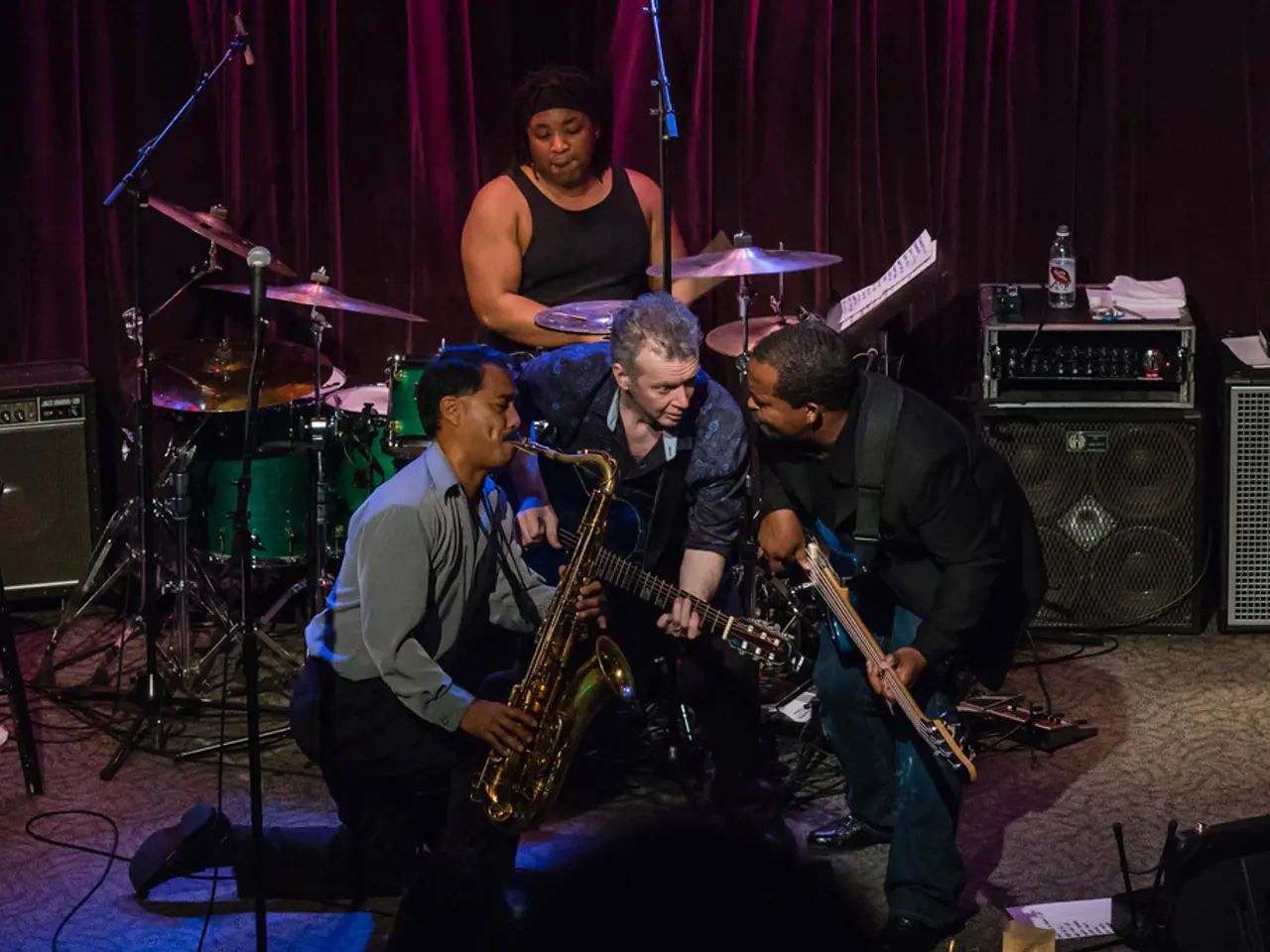Best Practices for On-site Audio Technicians
In the dynamic world of live sound engineering, advice from seasoned professionals can be invaluable. One such expert is Brian Pomp, a renowned live sound engineer who has worked with a diverse range of big acts including Grimes, Macklemore, Ke$ha, DNCE, Macy Gray, Iggy Azalea, and TLC. Here are some of Pomp's top tips for those starting out in this exciting field.
1. Gain hands-on experience early: Volunteer at local shows or theaters to learn the practical aspects of live sound. This hands-on experience is crucial for understanding the intricacies of the craft.
2. Be curious and always learn: Familiarise yourself with different audio consoles, microphones, and sound system setups. Knowing your gear is essential for making a show sound good, with understanding compression and equalization being key.
3. Build relationships and network: Live sound is a collaborative field, so building relationships with artists, engineers, and venues is important. Networking can open up opportunities and help you progress in your career.
4. Study the basics thoroughly: Acoustics, signal flow, and troubleshooting issues under pressure are fundamental areas to master. A solid understanding of these basics will equip you to handle any situation that arises during a live show.
5. Be patient and persistent: The career typically starts with small gigs and gradually builds into larger opportunities. Be patient and persistent, and the rewards will come.
6. Stay adaptable and calm: Live environments can be unpredictable, and quick problem-solving is essential. Adaptability and a calm demeanor are key qualities for a successful live sound engineer.
7. Live systems can now sound every bit as good as the best set of studio monitors with the use of advanced system control options and state-of-the-art line array speaker systems.
8. Reach out to managers of smaller upcoming artists to establish a relationship. They are likely looking for mixers and can't afford A-level mixers at that stage.
9. With the closing gap between studio and live mixing, it's crucial to be just as well-versed in studio mixing as in live mixing. This includes knowing how to operate various DAWs like Ableton Live, Logic Pro, and Pro Tools.
10. Pack light to avoid excessive baggage or overweight fees, and keep a detailed log of your favourite places to go on tour to stay sane. Also, make friends with the locals and try different types of food and experiences to enhance your travel.
11. Brian Pomp suggests getting the microphone and DI selection down, choosing the microphone or DI that best suits the source being captured and amplified.
12. Brian Pomp stresses the importance of understanding the gain structure across the entire system, ensuring that each stage is not exceeding its capabilities.
13. Audio gear development is constant, but everything needed to make a show sound good is available at nearly every budget level in current digital consoles.
14. Recallable scenes became very important for mixers over time as the musical content demanded it, with the flexibility of changing parameters from song to song becoming essential.
15. Brian Pomp often carries specific microphones for certain applications, as they may not be available in a sound company's inventory.
16. Brian Pomp suggests creating an extra mix for yourself during shows, especially when the band and artist aren't fussy, to help keep sane.
17. Mixing monitors is a crucial part of the show, as the band and artist rely on the monitor mixer to make it comfortable for them to perform.
18. The lead vocal is the most important channel in a mix, and it's crucial to ensure it isn't going to take off and start ringing uncontrollably during the show.
19. In the 20 years since digital consoles have taken over, they have drastically improved sonically and have even more powerful built-in features, including the use of onboard plug-ins.
20. Understanding how to build your network while navigating the politics within the music industry is important, emphasising the need to be pleasant and easy to work with.
- To excel in live sound engineering, it's essential to dive into education and self-development, familiarizing oneself with various DAWs like Ableton Live, Logic Pro, and Pro Tools, as Brian Pomp highlights the importance of being just as well-versed in studio mixing as in live mixing.
- Technology plays a significant role in the evolution of live sound, and with advancements in line array speaker systems and system control options, live systems can now sound as good as the best studio monitors, as mentioned by Brian Pomp.




